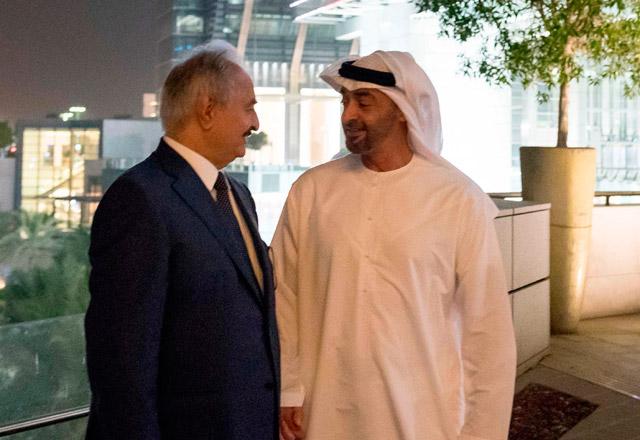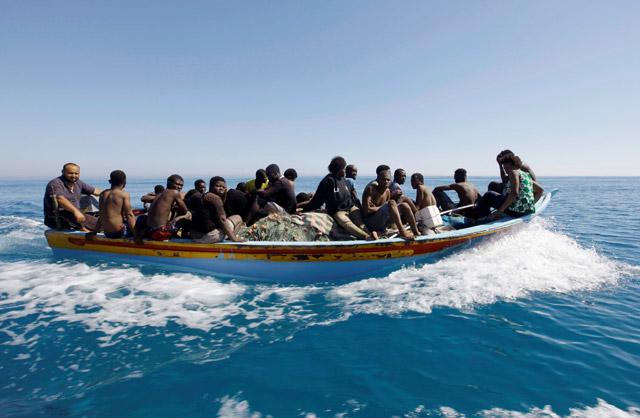You are here
Fighting persists east of Libya’s capital, residents displaced — town official
By Reuters - Jul 10,2017 - Last updated at Jul 10,2017

This handout image provided by United Arab Emirates News Agency shows Abu Dhabi Crown Prince and Deputy Supreme Commander of the UAE Armed Forces Mohammed Bin Zayed Al Nahyan (right) posing for a photograph with Libya’s Khalifa Haftar, the head of the self-proclaimed Libyan National Army, on Saturday, in Abu Dhabi (AFP photo)
TRIPOLI — Clashes between rival Libyan factions east of Tripoli extended into a second day on Monday, keeping the coastal road shut and preventing residents from returning to their homes, a local town council spokesman said.
The fighting began on Sunday when armed groups opposed to the UN-backed government in Tripoli tried to approach the capital and met resistance from rival groups that have aligned themselves with the government.
It is the latest in a series of attacks by armed opponents of the Government of National Accord (GNA), which have continued despite the GNA’s attempts to win the cooperation of militias operating in the city and to calm bouts of violence inside or close to the capital.
“At the moment we can hear heavy gunfire,” said Al Shareef Jaballah, a spokesman for the municipality of Garabulli, about 50km from Tripoli, speaking to Reuters by telephone shortly after midday.
He said local officials had received reports of two people being killed by the fighting, one of them an Egyptian national.
“The clashes have resulted in severe damage to houses and shops because of indiscriminate shelling, and forced a large number of residents ... to flee,” he said.
“The coastal road is still closed. The residents who have fled their homes are trapped because of the closure of the road.”
The GNA has struggled to impose its authority since arriving in Tripoli in March last year. It has been rejected by factions that control eastern Libya, where military commander Khalifa Haftar has been consolidating his position and installing military-appointed mayors.
As temperatures have climbed this month, parts of western Libya have once again been suffering from power and water cuts that residents have criticised the GNA for failing to resolve.
Related Articles
GARABULLI, Libya — At least ten migrants have died after their Europe-bound boats sank off Libya's coast and some 100 people are missing, co
TRIPOL — Libya's coast guard on Tuesday intercepted 117 migrants on a boat bound for Europe, including six pregnant women, before taking the
GARABULLI, Libya — Thirty-five migrants, including seven children, were feared drowned after their inflatable boat sank on Saturday off the













